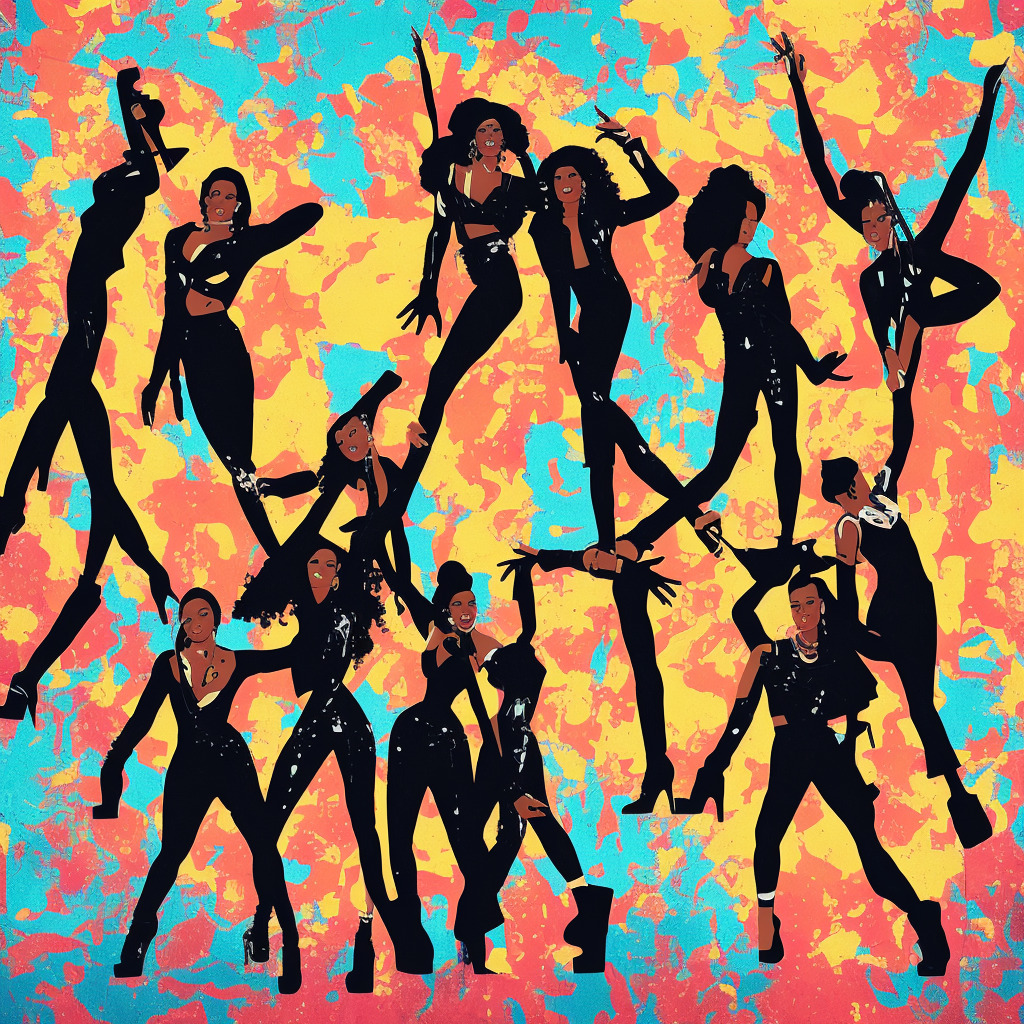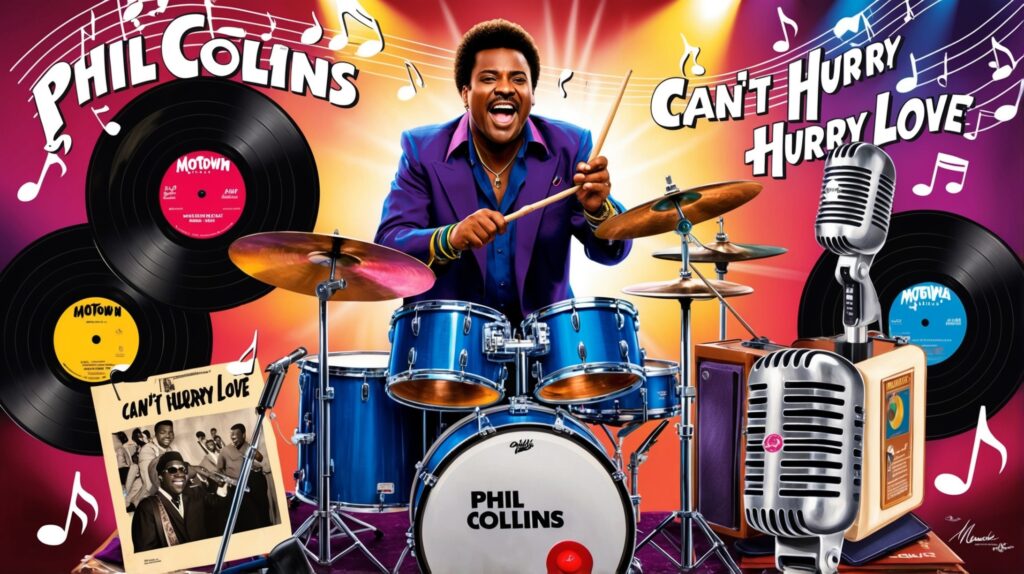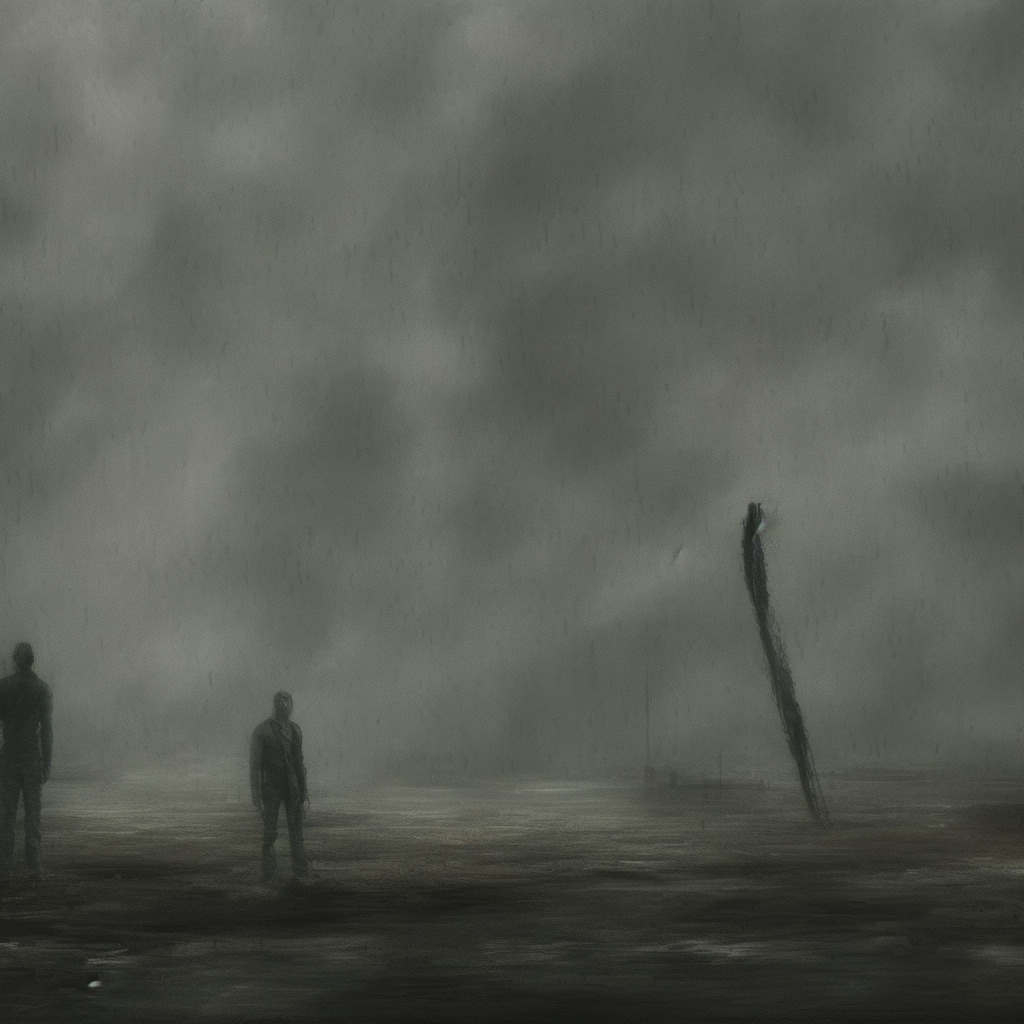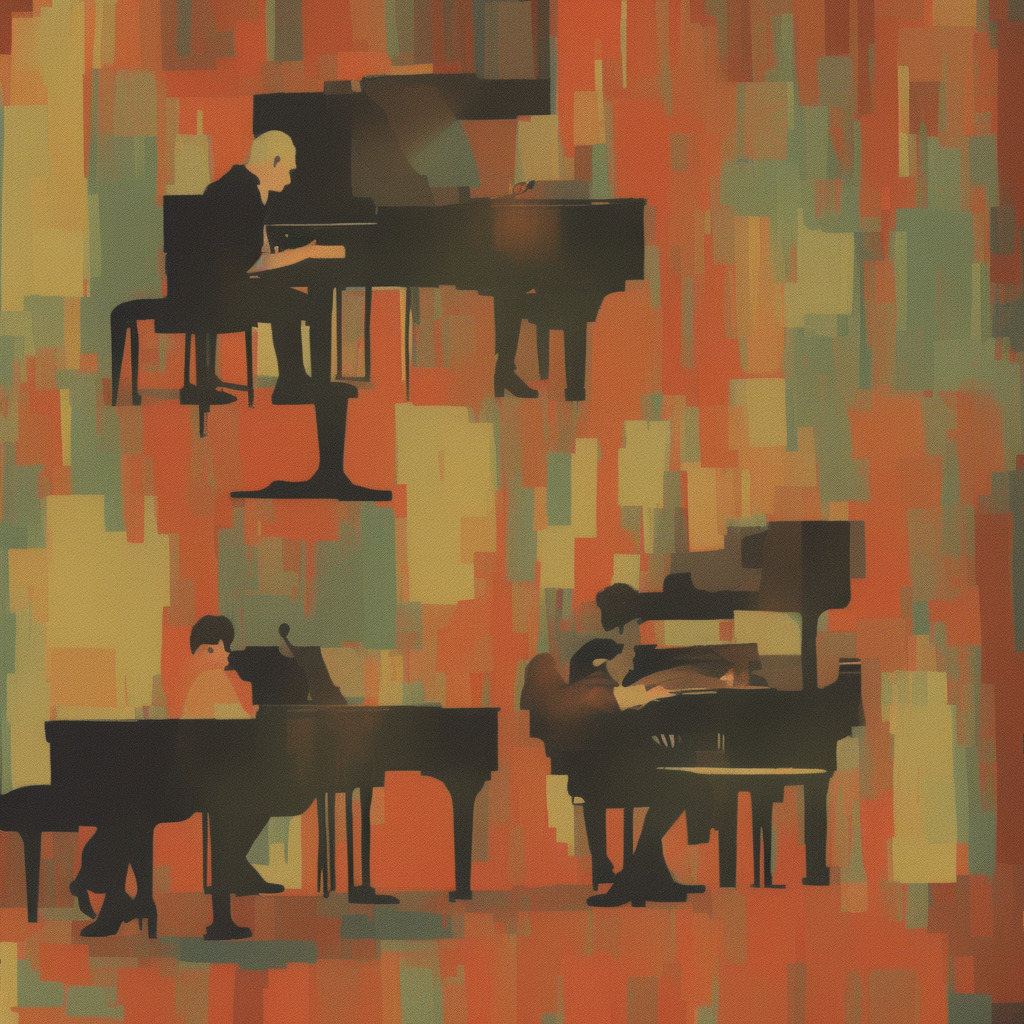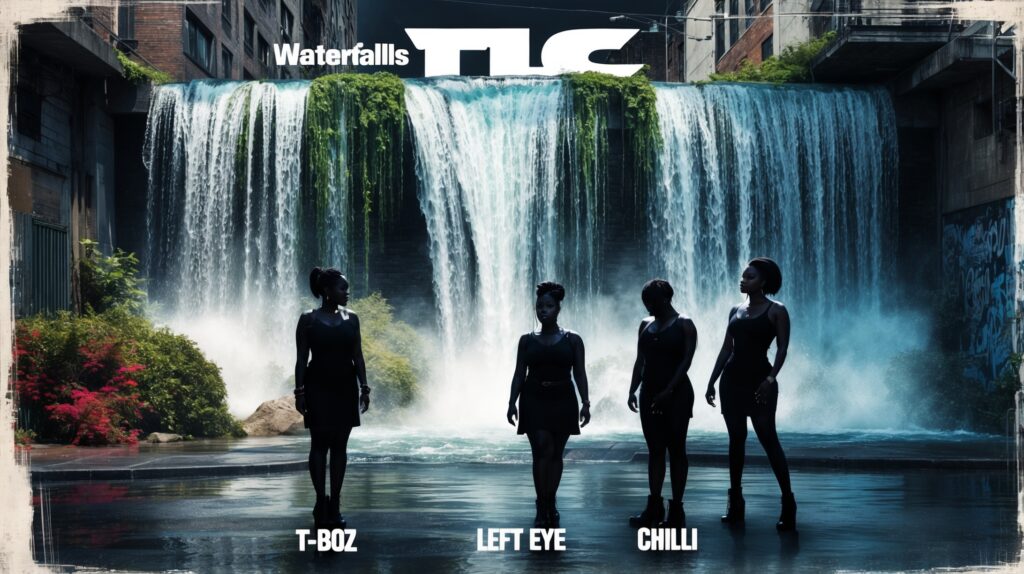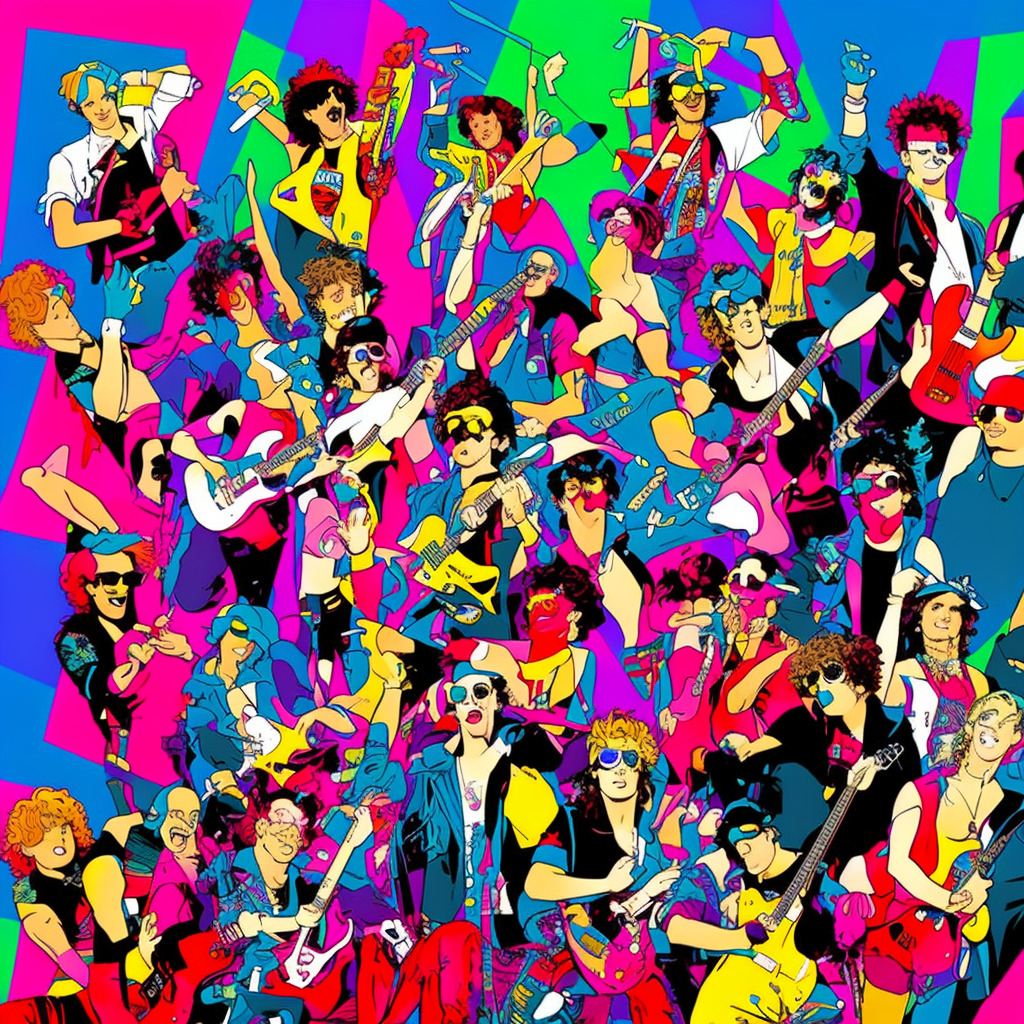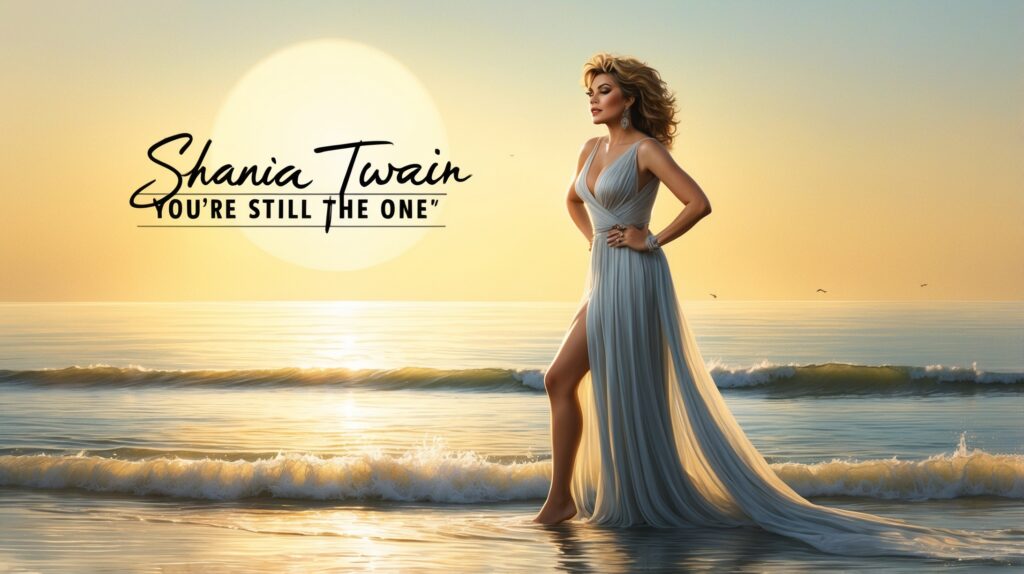? Throwback to ’92 with En Vogue’s sassy hit “My Lovin’ (You’re Never Gonna Get It)”! ? Did you know it samples a ’66 James Brown classic? ?? Groovy, right? #EnVogue #TBT #90sRnB #JamesBrownSample #FunkyDivas ? Read about it: tinyurl.com/mpzw98kv
The Timeless Appeal of En Vogue’s Irresistible Charm
En Vogue’s sassy anthem “My Lovin’ (You’re Never Gonna Get It)” unites powerful harmonies with female empowerment, forging a timeless R&B classic that still captivates listeners today.
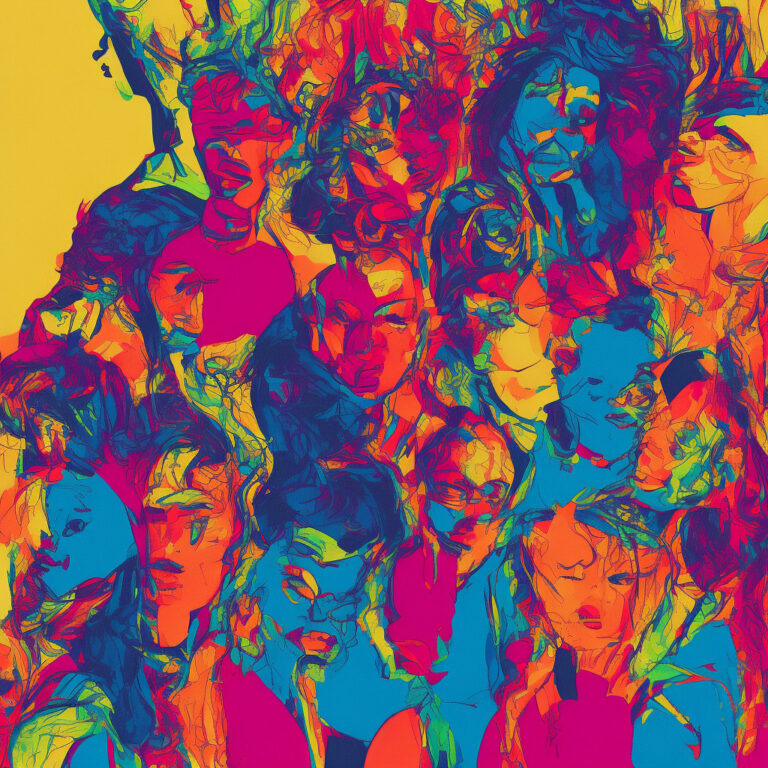
En Vogue, a groundbreaking all-female R&B group, rose to prominence in the early ’90s with a unique blend of powerful vocals and tight harmonies. At the heart of the group’s success was their dynamic lineup of four talented singers, each one bringing their own essence and strength to the table: Cindy Herron, Terry Ellis, Dawn Robinson, and Maxine Jones. Though initially assembled by production duo Denzil Foster and Thomas McElroy, the members of En Vogue became a cohesive unit, creating a collective persona that was both sultry and sophisticated.
One of the group’s standout tracks, “My Lovin’ (You’re Never Gonna Get It),” showcases their vocal prowess in a song that’s as catchy as it is sassy. Released in 1992 as the lead single from their sophomore album, “Funky Divas,” the irresistible tune became an anthem of female empowerment, asserting the independence of women in the face of relentless pursuit. The song’s infectious groove and unapologetically confident lyrics struck a chord with listeners, catapulting it to the top of the charts and solidifying En Vogue’s status as a force to be reckoned with.
“My Lovin’ (You’re Never Gonna Get It)” proved that the ladies of En Vogue were not just pretty faces but serious contenders in the music industry. The song’s success can be attributed not only to its clever songwriting, but also to the group’s unparalleled harmonies, which shone brightly in both the verses and the memorable, siren-like refrain. The music video for the song, directed by Matthew Rolston, further enhanced the group’s image with its sleek, black-and-white visuals and choreography that seamlessly incorporated the singers’ individual styles.
Throughout their career, En Vogue has been nominated for numerous awards, including seven Grammys, and has won several accolades such as MTV Video Music Awards, Billboard Music Awards, and Soul Train Music Awards. Though the group’s lineup eventually changed, with Robinson and Jones departing to pursue solo careers, their impact on the R&B landscape is undeniable. En Vogue’s influence can be heard in the music of many contemporary artists, and their trailblazing efforts have paved the way for future generations of talented women.
While it’s unfortunate that the group’s original lineup did not remain intact, it is important to appreciate the musical gems they produced together, such as “My Lovin’ (You’re Never Gonna Get It).” The song stands as a testament to En Vogue’s ability to blend irresistible hooks with a message of strength and self-assurance, creating a timeless classic that continues to resonate with listeners today.
Charting the Success of This Unforgettable Hit
En Vogue’s “My Lovin’ (You’re Never Gonna Get It)” skyrocketed to global chart success, showcasing their flawless harmonies and solidifying their status as R&B/pop music powerhouses.
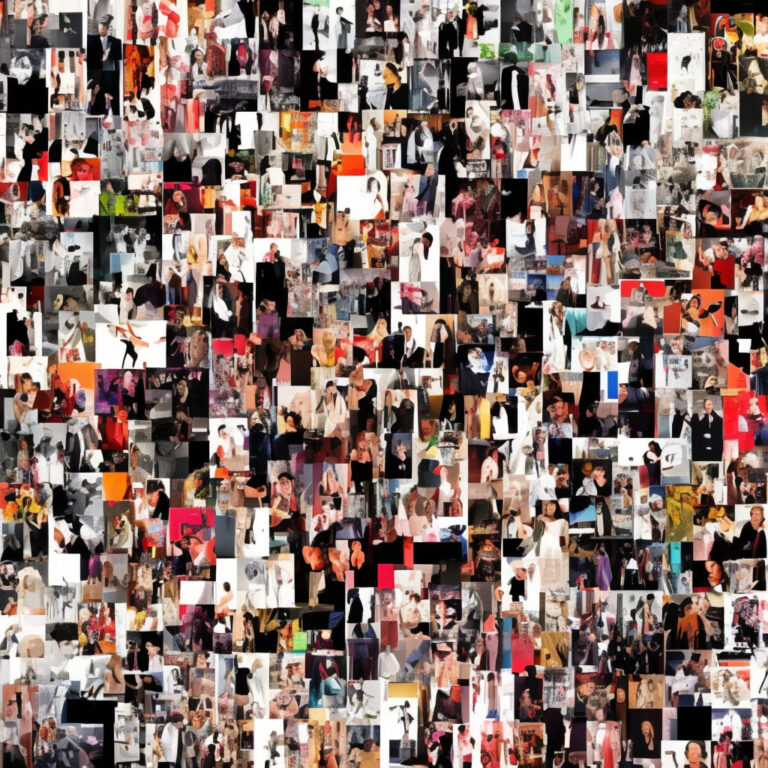
Since its release on February 24, 1992, “My Lovin’ (You’re Never Gonna Get It)” has undeniably made a significant impact on the music charts. The song, which was the second single from En Vogue’s sophomore album “Funky Divas,” showcased the group’s impressive vocal harmonies and irresistible rhythm, making it an instant favorite among fans and critics alike.
Upon its debut, the song quickly gained traction on the US Billboard Hot 100, entering the chart at No. 71 on the week of March 7, 1992. The track’s infectious energy and catchy melody propelled it up the chart, reaching the No. 2 position by the week of May 16, 1992. Although “My Lovin’ (You’re Never Gonna Get It)” was unable to secure the top spot, being held off by Kris Kross’s “Jump,” it remained in the No. 2 position for two weeks and maintained a presence on the chart for a respectable 22 weeks.
In addition to its success on the Hot 100, “My Lovin’ (You’re Never Gonna Get It)” also made a significant impact on the US Billboard Hot R&B/Hip-Hop Songs chart, where it reached No. 4. The track’s infectious danceability and flawless vocal performances resonated with R&B and hip-hop fans, solidifying its status as a cross-genre hit.
The song’s chart success wasn’t limited to the United States. Across the pond, “My Lovin’ (You’re Never Gonna Get It)” entered the UK Singles Chart at No. 34 on May 2, 1992, before peaking at No. 4 on May 30, 1992. The track maintained a presence on the chart for 11 weeks, further demonstrating its international appeal.
A fun piece of chart trivia about “My Lovin’ (You’re Never Gonna Get It)” is that it was En Vogue’s first song to chart in Australia, where it managed to peak at No. 5 on the Australian Singles Chart. This achievement marked the beginning of the group’s enduring popularity down under.
In summary, “My Lovin’ (You’re Never Gonna Get It)” proved to be a major success for En Vogue, achieving impressive chart positions in multiple countries and cementing the group’s status as a powerhouse in the world of R&B and pop music. With its catchy melody, exceptional vocal performance, and memorable chart run, it’s safe to say that this hit is one that music fans won’t soon forget.
Dissecting the Lyrics: A Bold Statement of Female Empowerment
Never, ever gonna get it
No, not this time
No, you’re never gonna get it
My lovin’
No, you’re never gonna get it
Had your chance to make a change
No, you’re never gonna get it
No, not this time
The lyrics of En Vogue’s 1992 hit “My Lovin’ (You’re Never Gonna Get It)” not only became an earworm for many but also signified a bold statement of female empowerment. Taking a closer look at the lyrics, we can see the strong message conveyed by the group, asserting their independence and control over their love lives.
The song was released in the early 90s, a time when women were beginning to make their voices heard and confidently fight for their rights. The repeated refrain “No, you’re never gonna get it” represents the group standing their ground and refusing to give in to the advances of a persistent individual, ultimately taking control of their own destinies.
Throughout the song, En Vogue emphasizes the importance of personal growth and self-discovery, with lines like “Had your chance to make a change.” These lyrics can be interpreted as highlighting the importance of self-improvement, both in relationships and in life, and sending a message that one must grow and evolve to keep up with the changing times.
In the context of the era, the song can also be seen as a response to the societal expectations placed upon women at the time, pushing back against traditional gender roles and championing female autonomy. By doing so, En Vogue contributed to the broader movement of women asserting their power and demanding respect, both in personal relationships and in society at large.
In conclusion, “My Lovin’ (You’re Never Gonna Get It)” by En Vogue is not only an incredibly catchy tune but also a powerful anthem of female empowerment that has resonated with listeners for decades, and continues to do so today.
Visualizing the Energy of En Vogue’s “My Lovin’ (You’re Never Gonna Get It)”
Dive into En Vogue’s iconic “My Lovin’ (You’re Never Gonna Get It)” video – a timeless masterpiece of empowering visuals, innovative choreography, and artistic prowess that still resonates today.
The iconic music video for “My Lovin’ (You’re Never Gonna Get It)” by En Vogue packs a punch with its vibrant visuals and energetic choreography. Directed by the talented Matthew Rolston, who has also worked with artists like Madonna, Beyoncé, and Rihanna, this video perfectly captures the essence of the song’s powerful message.
The production details of the video are quite impressive, given the time it was released. Shot in black and white, the video showcases the fierce and empowering performance of En Vogue members Cindy Herron, Terry Ellis, Maxine Jones, and Dawn Robinson. Cleverly employing a split-screen format, the video presents an innovative and captivating viewing experience for the audience. With a modest budget, Rolston and En Vogue managed to create a visually stunning and memorable video that still resonates with viewers today.
The artistic approach of the video plays a significant role in conveying the song’s central theme of self-confidence and assertiveness. The choreography, done by Frank Gatson Jr., is both intricate and powerful, reflecting the song’s catchy beats and groovy bassline. The group’s dynamic movements and flawless synchronization throughout the video add to the overall impact of the song.
Another interesting aspect of the video is its use of contrasting settings. From sleek, minimalist backdrops to a lively club scene, these diverse settings not only keep the viewer engaged but also bring a sense of depth and dimension to the video. The black and white format further emphasizes the group’s bold outfits and striking makeup, highlighting their fierce and confident presence.
The music video for “My Lovin’ (You’re Never Gonna Get It)” played a significant role in solidifying En Vogue’s reputation as a groundbreaking and influential force in the world of R&B music. Even decades after its release, the video’s artistic vision, captivating choreography, and powerful imagery continue to inspire artists and fans alike.
The Mastermind Behind the Groove: Composer Denzil Foster
Denzil Foster, the composer of En Vogue’s iconic hit “My Lovin’ (You’re Never Gonna Get It)”, has undoubtedly left an indelible mark on the world of music with his incredible songwriting prowess. Together with his partner, Thomas McElroy, Foster has demonstrated a keen sense of what makes a song not only catchy, but timeless. The dynamic duo’s Midas touch extends to other chart-topping tracks, such as Tony! Toni! Toné!’s “Feels Good” and Club Nouveau’s “Rumors.” Foster’s impressive discography showcases his ability to craft memorable melodies and lyrics that speak to the hearts of listeners, making him a revered figure in the realm of music production and composition.
Accolades, Appearances and Cover Versions
En Vogue’s “My Lovin’ (You’re Never Gonna Get It)” – a timeless R&B classic, celebrated by numerous awards and permeating pop culture with its iconic presence in movies, TV shows, video games, and eclectic cover versions.
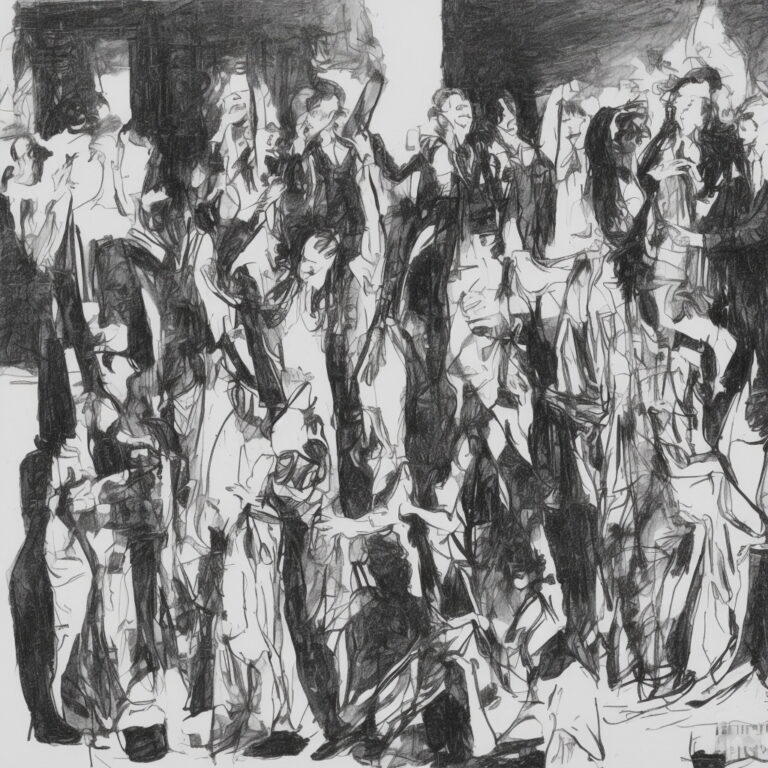
Over the years, “My Lovin’ (You’re Never Gonna Get It)” has received numerous accolades and recognitions, further cementing En Vogue’s place in the annals of R&B and pop history. The song garnered two MTV Video Music Awards in 1992, taking home trophies for Best R&B Video and Best Dance Video. These wins not only highlighted the infectious sound of the track but also recognized En Vogue’s powerful and engaging visual presence in their music videos.
In addition to its success on the music charts and awards circuit, “My Lovin’ (You’re Never Gonna Get It)” has also made its way into various forms of popular culture, including movies, TV shows, and video games. The song was featured in the 1993 film “Mystery Science Theater 3000: The Movie,” the 2001 film “Daddy Day Care,” and the 2018 film “Step Sisters.” On the small screen, it has made appearances in popular TV shows like “Fresh Off the Boat” and “Pose.” Gamers may recognize the iconic tune from “Grand Theft Auto: San Andreas,” where it was included as part of the game’s radio station playlist.
Over the years, several cover versions of “My Lovin’ (You’re Never Gonna Get It)” have been produced, further showcasing the song’s timeless appeal and impact on the music world. Notable among these reinterpretations is British singer Beverley Knight’s sultry take on the track, included in her 2005 album “Voice – The Best of Beverley Knight.” The song has also been sampled and reworked by numerous artists, with its catchy hooks and memorable melodies appearing in works by the likes of Jennifer Lopez, The Internet, and The Black Eyed Peas, to name a few.
All in all, “My Lovin’ (You’re Never Gonna Get It)” has not only stood the test of time as a classic R&B and pop hit, but its continuous presence in popular culture and the creation of various cover versions serve as a testament to En Vogue’s enduring impact on the music scene.
Diving into the Intricacies of a Timeless Classic
The musical genius behind “My Lovin’ (You’re Never Gonna Get It)” is evident in its intricate and well-crafted structure. The song is written in the key of G minor, which lends a sultry and somewhat dark undertone to the overall mood. This is further emphasized by the use of the G harmonic minor scale, which imparts a unique flavor to the melody and harmonies.
The chord progression of the song follows a rather unconventional pattern, which adds to its distinctiveness. The verses are built on a i-iv-VI progression (Gm-Cm-E♭), while the pre-chorus takes on a iv-III-i-iv pattern (Cm-B♭-Gm-Cm). The chorus follows a i-III-iv-VII (Gm-B♭-Cm-F) progression, culminating in the post-chorus with a i-VI-VII (Gm-E♭-F) structure. This deviation from conventional chord progressions is what gives “My Lovin’ (You’re Never Gonna Get It)” its unique and memorable sound.
The tempo of the song is set at a moderate pace of 98 beats per minute (BPM), which falls within the range of a typical R&B track. This tempo allows for a laid-back, groovy feel that perfectly complements the soulful vocals and harmonies. The use of syncopation in the rhythm sections further accentuates the groove and contributes to the song’s overall infectiousness.
Another key element of the song’s arrangement is the masterful use of vocal harmonies by En Vogue. The group’s four-part harmony adds depth and richness to the track, with each member’s unique vocal tone blending seamlessly to create a lush and captivating soundscape. The vocal arrangement also showcases the group’s impressive range, with soaring high notes and sultry low tones that demonstrate their unparalleled skill and talent.
The instrumental arrangement of “My Lovin’ (You’re Never Gonna Get It)” is equally noteworthy. The combination of a funky bassline, crisp drum beats, and atmospheric synth pads creates a solid foundation for the vocals to shine. The subtle use of guitar riffs and horn stabs in the chorus adds an extra layer of excitement and energy, making this song a true standout in the R&B genre.
In conclusion, the intricate musical structure, exceptional vocal harmonies, and captivating instrumental arrangement are just a few of the elements that make “My Lovin’ (You’re Never Gonna Get It)” an enduring classic by En Vogue.

